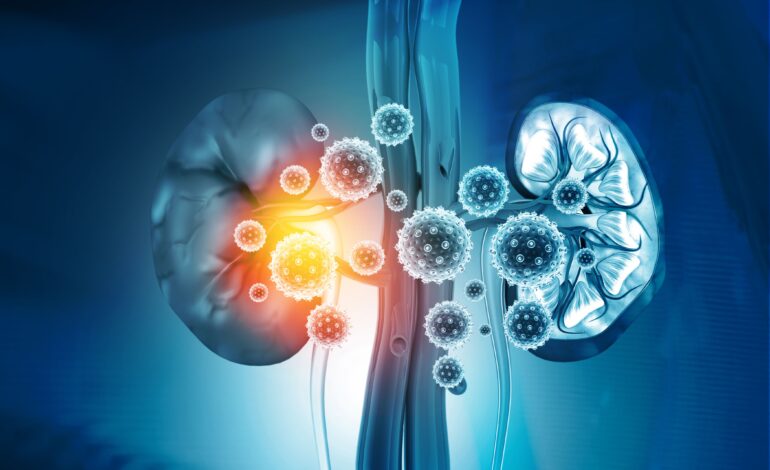Mitochondria-Targeted Therapies Set to Revolutionize AKI Treatment

Research published in Genes & Diseases highlights the potential of mitochondria-targeted therapies to significantly change the treatment landscape for acute kidney injury (AKI). The authors of the study urge the need for further research to validate these findings across various models and to address any potential adverse events associated with such therapies.
AKI is a condition characterized by a sudden loss of kidney function, which hampers the kidneys’ ability to filter waste products from the blood. This often leads to a dangerous buildup of fluids and waste. The condition is particularly prevalent among hospitalized patients, and while it can be reversible, severe and untreated AKI may result in fatal outcomes. Common symptoms include decreased urinary output, swelling due to fluid retention, nausea, fatigue, and shortness of breath. In some cases, patients may not exhibit any symptoms at all.
Research indicates that AKI is both a precursor and a consequence of chronic kidney disease (CKD). The progression from AKI to CKD is well-documented, with underlying CKD being a significant risk factor for developing AKI. Symptoms of CKD, such as decreased glomerular filtration rates and increased proteinuria, are strongly associated with AKI. Patients requiring dialysis for AKI are particularly at risk for poor long-term outcomes, including end-stage kidney disease.
Targeting Mitochondria for Better Outcomes
Given the critical role of AKI in global health and its high mortality rates, there is an urgent need for effective intervention strategies. One promising approach involves targeting mitochondrial biogenesis, a vital process that supports energy metabolism, cellular stress resistance, and overall cell survival. Enhancing mitochondrial biogenesis may restore mitochondrial function, reduce oxidative stress, and foster renal recovery in patients suffering from AKI.
The kidneys have a high reliance on effective mitochondrial function due to their significant energy demands. During episodes of AKI, mitochondrial dysfunction results in reduced energy production, increased oxidative damage, and ultimately, cell death, all of which exacerbate kidney injury. The authors argue that any suppression of mitochondrial biogenesis not only disrupts cellular energy balance but also hampers the kidney’s ability to respond to harmful stimuli, leading to accelerated disease progression. Thus, therapeutic strategies aimed at boosting mitochondrial biogenesis could significantly improve patient outcomes.
Research Insights and Future Directions
Multiple factors influence mitochondrial biogenesis, including the transcriptional coactivator PGC-1α, which enhances the expression of genes critical to mitochondrial function. Activating PGC-1α can lead to improved ATP production, decreased reactive oxygen species, and enhanced cell survival under stress. Compounds such as resveratrol, which activates PGC-1α through SIRT1-mediated deacetylation, show promise for promoting mitochondrial health. Furthermore, small molecules like ZLN005 and pyrroloquinoline quinone can enhance mitochondrial biogenesis via pathways involving AMPK activation and CREB phosphorylation.
Despite the potential benefits of regulating mitochondrial biogenesis in AKI treatment, the complexity of this process cannot be overlooked. Excessive activation may result in protein misfolding, mitochondrial damage, and cellular toxicity. Therefore, achieving a balanced activation of mitochondrial biogenesis is essential to prevent adverse events.
Translating insights on mitochondrial biogenesis into clinical practice requires overcoming challenges related to drug specificity, targeted delivery, and individual patient variability. The authors emphasize the importance of personalized approaches that consider the etiology and subtype of AKI, as well as patient-specific factors such as comorbidities. Integrating multiomics data could also aid in identifying biomarkers that predict treatment responses, facilitating more precise and effective therapies.
The authors conclude that mitochondria-targeted therapies represent a promising avenue for enhancing AKI treatment. By addressing underlying mitochondrial dysfunction, these strategies could significantly improve renal recovery rates, reduce disease progression, and enhance patient survival. Future research should focus on optimizing drug design, gaining a deeper understanding of mitochondrial biogenesis regulation, and conducting clinical trials to validate effective treatments for patients suffering from AKI.






